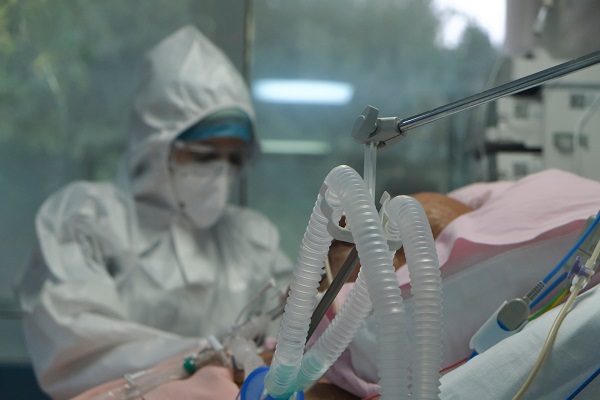The Canadian Medical Association (CMA) is issuing an urgent call for unprecedented measures to address the state of crisis unfolding in several provinces. This includes marshalling national resources where needed, applying restrictive public health measures, and prioritizing national collaboration to save the most lives.
“As the third wave of the pandemic wreaks havoc on the healthcare and public health systems, healthcare providers, and patients, we are at a critical juncture where a truly national approach to combatting COVID-19 will make the difference between more or fewer lives saved,” says Dr. Ann Collins, president of the CMA. “This country must come together to help support provinces most severely impacted.”
The CMA is calling for province-to-province collaboration and national leadership to address the scale and severity of the pandemic. Specifically, the CMA is recommending deployment of resources where they are most needed to save the most lives. This means sharing healthcare resources across provincial and territorial borders to help jurisdictions that are currently at crisis levels with ICUs and where healthcare capacity is overwhelmed. Any measures taken now will take time to have an impact given the lag from exposure to disease – we must act now.
“We act as one country when crisis hits with wildfires, floods and other tragedies. This pandemic has reached a new level that requires a national response” adds Dr. Collins. “We must do everything needed to avoid making unbearable choices as to who lives if resources are not available.”
The CMA is also calling on the federal government to consider a re-prioritization of its vaccine distribution strategy to focus on areas of urgent need as opposed to the per-capita approach adopted to date. In addition, with current programs deemed inadequate in terms of allowing workers to stay at home, an enhanced form of paid sick leave is urgently required. Better communication and supports are necessary for people in Canada to adhere to public health measures and minimize risks.
“These are strong measures, but they are absolutely needed,” said Dr. Collins. “We are one country, and it’s time we started acting as one by deploying resources where they are most needed. If we can’t achieve this through voluntary cooperation, then more and stronger measures might be needed.”
Further restrictions must also be considered in provinces/territories who are not experiencing the rate of transmission witnessed in Ontario and Quebec. Provinces with lower COVID-19 transmission rates must preserve their status in order to support jurisdictions in dire circumstances – circumstances that all provinces must ensure are avoided.
Emergency measures are required to ensure provinces grappling with pandemic management have the critical resources they need to preserve life. The CMA urges political leaders to come together as a nation to address this crisis. There are difficult decisions to make in balancing the pandemic response goals of minimizing serious COVID-19 illness and death while also minimizing the adverse societal impacts; we are at a critical juncture in this response. Physicians and all healthcare workers are pleading for this unprecedented level of response as the crisis takes hold in our hospitals and in our communities.




